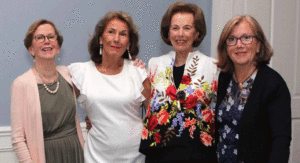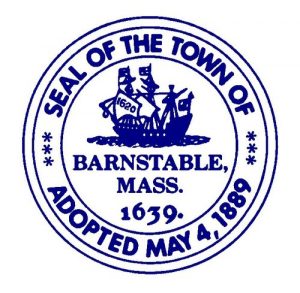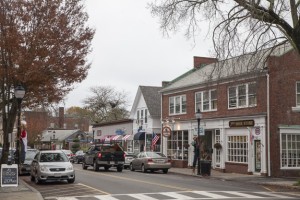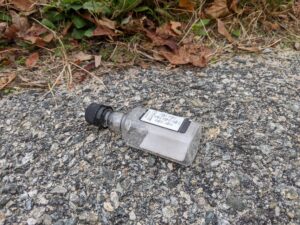 HYANNIS – Alice O’Neill taught for 41 years, including decades as a first-grade teacher at Osterville Elementary School. She retired from the classroom in 1999 and soon devoted herself to volunteering as a fundraiser for cancer research and treatment.
HYANNIS – Alice O’Neill taught for 41 years, including decades as a first-grade teacher at Osterville Elementary School. She retired from the classroom in 1999 and soon devoted herself to volunteering as a fundraiser for cancer research and treatment.
Her interest in cancer research stemmed from her own experience with the disease, as well as family members, including her husband, Ed. O’Neill worked for years helping the American Cancer Society chapter on Cape Cod with fundraisers, and has remained devoted to Cape Cod Hospital where she and her family members were treated.
Last month, Cape Cod Healthcare honored O’Neill for her years of service by dedicating a virtual classroom, to be called “Alice’s Classroom,” in the new Cancer Center at Cape Cod Hospital, which is scheduled to open in 2022. The announcement was made in front of a full house – and a stunned O’Neill – at the Soiree by the Bay fundraiser which supported Cape Cod Healthcare cancer services.
For 16 years, O’Neill has been on the organizing committee for the annual cancer fundraiser, previously run by the American Cancer Society and this year run independently by a group of local volunteers as the Soiree on the Bay.
This year’s event was a record breaker, raising almost $220,000 to support Cape Cod Healthcare’s oncology nutrition, transportation and lodging programs, as well as the endowment fund for Alice’s Classroom.
An Enduring Honor
In announcing the education fund, Cape Cod Healthcare President and CEO Michael Lauf said it was a chance to “celebrate how one person can truly make a difference and inspire so many of us to go beyond what we thought we were capable of.”
The namesake for Alice’s Classroom couldn’t be more thrilled about the new education fund.
“I’m still in a state of shock,” she said. “I had no idea such a thing was happening.
The Importance of Education
O’Neill knows well the importance of education in every aspect of life, but especially when facing a cancer diagnosis.
“When I was diagnosed with cancer, I was so terrified that I couldn’t eat for two weeks. People tried to help me understand that having cancer didn’t mean I was going to die. Information helps people to not be afraid,” she said. “My classroom was always my second home. The idea that I could be associated with education – and education is so important for cancer patients – I can’t think of anything that would be more of an honor.”
Education for cancer patients, their families and their treatment providers is a big part of what the medical staff does, said Jeffrey M. Martin, MD, a radiation oncologist at the Davenport-Mugar Cancer Center at Cape Cod Hospital.
“Information is really powerful, although it can be overwhelming at times,” he said. “Part of our job is to help patients frame it.
“A lot of times patients come in and they have a lot of fear and anxiety about the situation. When they have an action plan and know what to expect, that goes a long way to calming people down and allowing them to feel like they have some control in the situation.
“The more information they have, the more education they have, the better they can advocate for themselves. It’s very important for people’s overall well-being.”
While every patient’s case is unique, the questions they have can be quite similar, Dr. Martin said.
“They’re trying to get up to speed and become experts on their own health and their own particular situation. That’s something that takes clinicians years of training to become comfortable and familiar with.
“It can be trying to drink from a fire hose, in that regard. They’re trying to learn staging and figure out where their cancer fits and what their prognosis might be. What are the different treatment options? What are the pros and cons of the different treatment options? What are the potential side effects? What do they have in store? How can they expect to feel and for how long? So, it’s just a ton of questions.
“A big part of our job is educating them and trying to make them comfortable the best we can with the situation and what they’re going to be going through. Any resources we can put to that go a long way in helping patients deal with their situation.”
The Best Resources
Nurses are an important part of the patient education process, he said. “Not only upfront, but throughout the course of treatment, they’re a great resource for patients.”
In addition to handouts from the oncology staff, online resources can be helpful, although Dr. Martin said it can sometimes be hard for patients to know what sources are reliable.
He recommended having a family member or friend attend appointments.
“Having a second set of ears when you’re trying to absorb all this information is really important,” he said. “It’s not uncommon to hear patients say, once they heard the cancer word, ‘I didn’t remember anything else for the rest of that conversation.’ If you have someone else with you, they can help to you process information and take notes.”
Photo (L to R): Jeannie Murphy, Carolyn Crawford, Alice O’Neill and Deborah Baker
Photo credits – Mel Marchand of Mel Marchand Custom Photography at [email protected] or 508-737-5328.
Editor’s Note: reporter Bill O’Neill is proud to be Alice O’Neill’s stepson
























